Is Grapefruit Beneficial For Your Skin?
Unlock the power of grapefruit for radiant health and a game-changing skincare routine.

Image: Shutterstock
People around the world use many different fruits to nourish their skin. But, can you use grapefruit for skin care? Does it offer any skin benefits?

Grapefruit, also known as the forbidden fruit, is a versatile citrus fruit that is both healthy and refreshing. It is rich in several nutrients (1). While this hybrid fruit is a nutritious breakfast or snack option, its health benefits are not the only thing it has to offer. Are you curious about the benefits of grapefruit for your skin? Continue reading to learn more.
 Know Your Ingredient: Grapefruit
Know Your Ingredient: GrapefruitWhat Is It?
A subtropical citrus fruit that tastes bittersweet and sour.
What Are Its Benefits?
Improves skin health, helps heal wounds, and reduces signs of anti-aging, and protects the skin from UV rays.
Who Can Use It?
Suitable for all skin types, especially people with Vitamin C deficiency.
How Often?
Regularly, but in moderation.
Caution
People with liver or small intestine-related issues should avoid consuming it.
In This Article
Why Is Grapefruit Good For Your Skin?

Grapefruit is a juicy citrus fruit with a sour to bittersweet flavor. While the fruit is known to promote general health, it also is good for the skin. One major reason is its vitamin C content.
Like most citrus fruits, grapefruit is a rich source of vitamin C. Half a medium grapefruit can offer you about 50% of the recommended daily dose of vitamin C (2). This vitamin acts as a powerful antioxidant in the human body. Antioxidants play a big role in neutralizing the impact of free radicals in the body and fight inflammation. Vitamin C also helps in collagen synthesis. Collagen is an essential protein that works to maintain your skin health (3).
To further understand how good grapefruit can be for your skin, read the following section.
Key Takeaways
- Grapefruit is a citrus fruit rich in vitamin C, which boosts collagen production and fights free radicals.
- Using grapefruit in your daily skin care routine may protect your skin from UV rays, stimulate wound healing, and keep your skin hydrated.
- You can incorporate grapefruit into your diet in the form of juice or use it along with grapeseed oil, egg white, or yogurt as a hair mask.
Benefits Of Grapefruit For Skin
Incorporating grapefruit into your daily skincare routine can provide several benefits for your skin. Here is how.
1. May Limit The Impact Of UV Rays
Grapefruit is loaded with Vitamin C that can help protect your skin against the damage caused by the ultraviolet (UV) rays of the sun. The free radicals in your body are responsible for skin damage. The antioxidant activity of vitamin C acts against these free radicals and limits their impact on skin cells. Vitamin C also helps increase the chances of cell survival after they are exposed to UV rays (4), (5).
2. May Decrease Photodamage Or Wrinkle Formation
Photodamage and natural aging are two processes that bring several changes to your skin. Photodamage occurs when your skin is damaged due to the absorption of UV light. Your skin may suffer from a loss of elasticity, resulting in wrinkles and dryness. The vitamin C in grapefruits can enhance collagen protein synthesis and may help repair any skin damage. The collagen can help keep your skin looking wrinkle-free and youthful (5).
3. Keeps Skin Hydrated

Almost 90% of a raw grapefruit is water. This high water content can be good for your skin. Magnesium ascorbyl phosphate, a vitamin C derivative, aids skin hydration by reducing water loss from the skin surface (6). Dehydrated skin can look dry, dull, and flaky. Dry skin loses its suppleness and is predisposed to develop wrinkles. Hydrated skin has a better appearance and texture.
4. May Help Heal Wounds
The vitamin C in grapefruit may promote wound healing. This happens due to the collagen synthesis that vitamin C supports (5).
5. May Help Reduce Pigmentation
Grapefruit can be effective in reducing skin pigmentation. Its vitamin C may act as a depigmentation agent. The nutrient works to decrease the formation of melanin, the natural skin pigment that can make skin, hair, and eyes appear darker (6). The antioxidant action of beta carotene in grapefruit helps brighten the skin (7). The acid content of grapefruit serves as a chemical exfoliation element, making the skin brighter and evens the skin tone.
6. Reduces Inflammation
The vitamin C in grapefruit helps control the activities of NFkB, a protein complex known to activate pro-inflammatory cytokines. In other words, this vitamin acts as an anti-inflammatory agent. It can help reduce inflammation in several skin conditions, including rosacea and acne. Vitamin C also helps limit post-inflammatory hyperpigmentation (6).
Now that you know the importance of grapefruit for skin health, it is time to understand how to use it correctly to reap all of the benefits.
How To Use Grapefruit For Skin
There are several ways you can experience the benefits of grapefruit for your skin. You can use this citrus fruit for skin externally or internally through the following natural remedies.
1. Include In Your Diet

You can enjoy grapefruits as part of your diet. The fruit is juicy and flavorful and is an ideal snack when you feel hungry. You can even have this fruit in a juiced form. Add lime juice or mint leaves to make your drink more appealing.
 Quick Tip
Quick Tip2. Use As A Mask: Easy DIY Masks

Fruit face masks for glowing skin are packed with vitamins, antioxidants, and natural acids that brighten your complexion. They help exfoliate dead skin cells and enhance texture. Here are a few simple DIY grapefruit masks for your skin:
DIY Mask 1: Grapefruit And Yogurt Anti-Acne Mask
Ingredients
- ½ grapefruit, medium
- ½ cup of Greek Yogurt
Equipment
- 1 small bowl
- Spoon
- Face mask brush
Procedure
- Take the grapefruit and the yogurt in a small bowl and mix them using the spoon.
- Cleanse your face and apply a thin layer of this mixture using the face mask brush.
- Allow the mask to remain on your face for about 10 minutes.
- Rinse with warm water and apply your regular moisturizer.
- You can use this mask once every week.
DIY Mask 2: Grapefruit, Sugar, And Grapeseed Oil Body Scrub
Ingredients
- Juice from half a grapefruit
- 3 tablespoons of grapeseed oil
- 1 cup of sugar
Equipment
- 1 small bowl
- Spoon
Procedure
- Combine the grapefruit juice, grapeseed oil, and sugar in a small bowl using a spoon.
- Clean your face and apply the mask using your fingers.
- Scrub your dry skin gently.
- Use this scrub in a single sitting as it contains fresh juice.
DIY Mask 3: Grapefruit, Honey, And Cornmeal Mask For Acne
Ingredients
- Juice from half a grapefruit
- ½ cup of cornmeal
- 1 tablespoon of honey
Equipment
- 1 small bowl
- Spoon
- Face mask brush (optional)
Procedure
- Take a bowl and mix the cornmeal, honey, and grapefruit juice using the spoon.
- Apply the mask to your skin using your fingers or a face mask brush.
- Let it stay for about 10 minutes.
- Rinse with warm water.
- You can use this mask on your face or anywhere else where you have acne breakouts.
DIY Mask 4: Grapefruit, Egg White, And Sour Cream Face Mask For Oily Skin

Ingredients
- Juice from a small grapefruit
- 1 egg white
- 1 teaspoon of sour cream
Equipment
- 2 small bowls
- Hand whisk
- Small airtight container
- Face mask brush (optional)
Procedure
- Take a bowl and beat the egg white until it becomes fluffy.
- Cut the grapefruit and give it a squeeze to collect about 2 teaspoons of juice in a bowl.
- Mix the sour cream, grapefruit juice, and egg white.
- Whisk the ingredients till they attain a creamy consistency.
- Apply the mask to cleansed face and neck area using your fingers or a face mask brush. Avoid applying to the eye area.
- Let it stay on for 15 to 20 minutes before washing with lukewarm water.
- Pat dry your face and apply your regular moisturizer.
- You can store any excess mask in an airtight container inside the fridge for 2 days.
- You can use this mask twice a week.
DIY Mask 5: Grapefruit And Avocado Mask For Glowing And Refreshed Skin
Ingredients
- ½ a ripe avocado
- ½ a grapefruit
Equipment
A blender
Procedure
- Scoop out the flesh of the avocado into the blender.
- Squeeze the juice from the grapefruit into the blender.
- Blend the ingredients until you have a smooth, creamy mixture.
- Apply this mask to your clean, dry face and leave it on for 15-20 minutes.
- Rinse off with lukewarm water.
- Use this mask 1-2 times a week.
DIY Mask 6: Grapefruit And Cucumber Mask For Skin Rejuvenation
Ingredients
- ½ a cucumber
- ½ a grapefruit
Equipment
A blender
Procedure
- Cut the cucumber into chunks and add them to a blender.
- Squeeze the juice from the grapefruit into the blender.
- Blend the ingredients until you have a smooth paste.
- Apply this mask to your clean face, avoiding the eye area.
- Leave it on for 15-20 minutes.
- Rinse off with lukewarm water.
- Use this mask 1-2 times a week.
A blogger crafted a refreshing pink grapefruit face wash after discovering its refreshing fragrance. She used half a pink grapefruit (peel included) with 1 tablespoon of milk and 1 teaspoon of sugar. Delighted at the results, she exclaims, “This face wash is perfect for summer! Not only does it smell great but your skin will feel extremely refreshed too [sic] (i).”
 Quick Tip
Quick TipInfographic: 5 Ways Grapefruit Improves Skin Health
Grapefruit is not only a delicious citrus treat but also offers numerous benefits for your skin. From promoting a brighter complexion to protecting against UV damage, grapefruit has become a popular ingredient in skin care. Take a look at the infographic below to learn the top 5 advantages of grapefruit for the skin.
Some thing wrong with infographic shortcode. please verify shortcode syntaxGrapefruit has numerous skin and health benefits. Grapefruit turns out to be more of an overachiever than we expected – this wonderful fruit is packed with nutrients that enhance, protect, and hydrate the skin. This fruit is high in vitamin C and can help your skin in various ways. This fruit can be eaten or used externally as a face mask or scrub. We are confident that you will be pleased with the outcomes if you follow the tips and include this fruit in your diet and skin care routine. However, give your skin a breather if you notice any burning sensations, redness, or exacerbated breakouts. Consult your doctor if you experience any major adverse effects.
Frequently Asked Questions
Does grapefruit have salicylic acid?
Yes, grapefruit is a natural source of salicylic acid that helps cleanse pores and clear breakouts.
Which fruit is good for acne-prone skin?
Apart from grapefruit, oranges, and citrus fruits, pomegranate, papaya, and strawberries are a few other fruits that are good for acne-prone skin.
Does grapefruit brighten skin?
Yes, grapefruit contains vitamin C that helps fight radical damage and repair the skin, thereby brightening it.
Does grapefruit oil tighten skin?
Vitamin C helps in collagen synthesis that can result in skin tightening. Grapefruit also acts as an exfoliate to keep your pores tight and clean.
Is it OK to eat a grapefruit every day?
Yes. It is okay to eat a grapefruit every day. You can have it as part of your breakfast or as a snack in between meals.
Is grapefruit safe for all skin types?
Yes,grapefruit is safe for all skin types. However, it is best to do a patch test if you have extremely dry and sensitive skin as the presence of vitamin C may cause irritation in some people.
Can grapefruit cause skin irritation or allergies?
Yes, grapefruit may cause skin allergies like rashes, swelling, vomiting, and hives.
Illustration: Grapefruit For Skin: Benefits And Uses
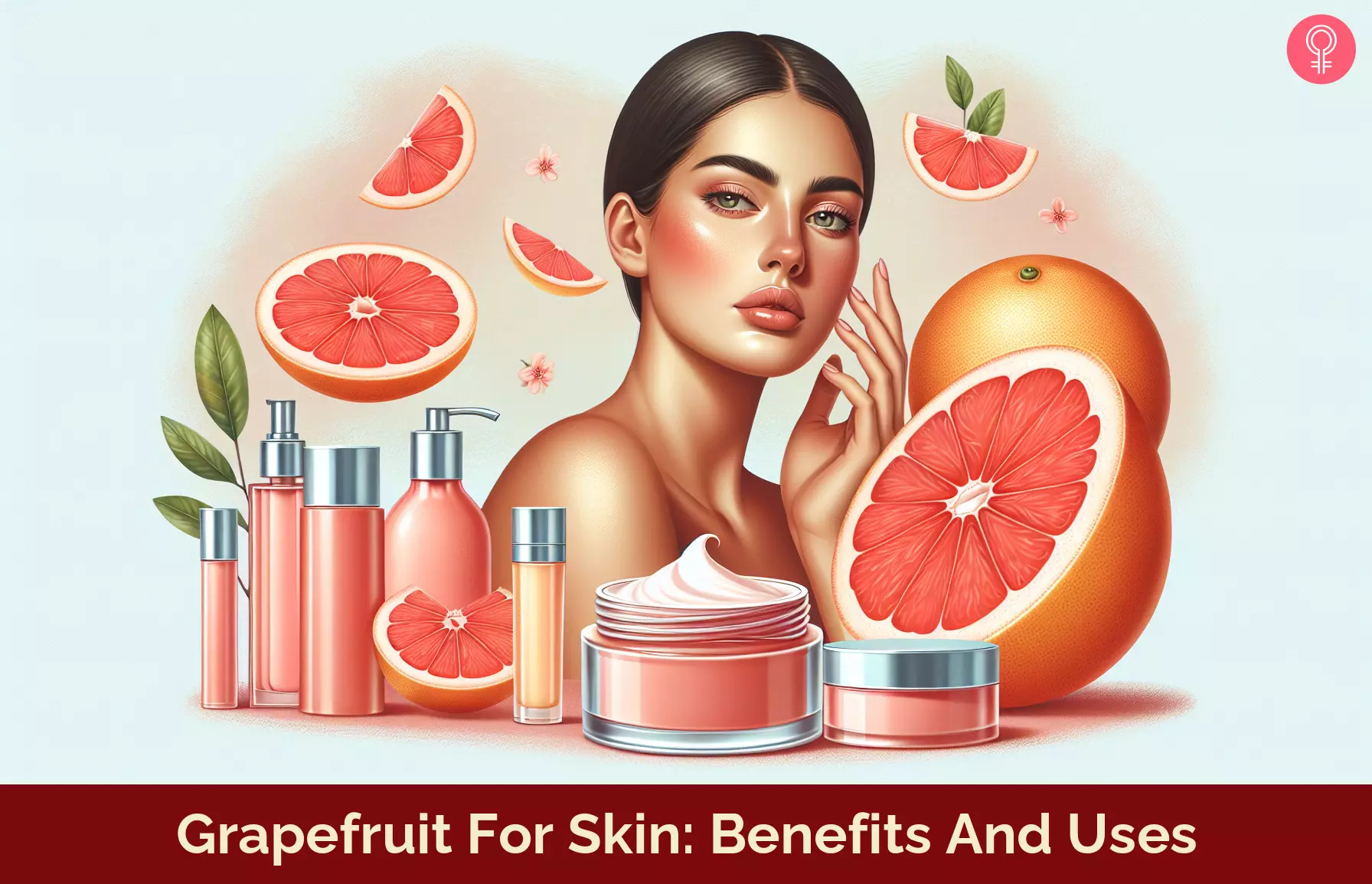
Image: Dall·E/StyleCraze Design Team
Discover 3 easy ways to use grapefruit in your natural beauty routine! Learn how to make a face mask, body scrub, and lip balm with this delicious citrus fruit in this video. Check it out now!
Personal Experience: Source
StyleCraze's articles are interwoven with authentic personal narratives that provide depth and resonance to our content. Below are the sources of the personal accounts referenced in this article.
i. DIY BEAUTY FRIDAYS: PINK GRAPEFRUIT FACE WASH
https://lipglossnheels.blogspot.com/2011/05/diy-beauty-fridays-pink-grapefruit-face.html
References
Articles on StyleCraze are backed by verified information from peer-reviewed and academic research papers, reputed organizations, research institutions, and medical associations to ensure accuracy and relevance. Read our editorial policy to learn more.
- Consumption of grapefruit is associated with higher nutrient intakes and diet quality among adults, and more favorable anthropometrics in women, NHANES 2003, 2008
https://www.ncbi.nlm.nih.gov/pmc/articles/PMC4016745/
- Grapefruit, raw, pink and red, all areas
https://fdc.nal.usda.gov/fdc-app.html#/food-details/174673/nutrients
- Vitamin C
https://nutritionsource.hsph.harvard.edu/vitamin-c/
- Skin photoprotective and antiageing effects of a combination of rosemary (Rosmarinus officinalis) and grapefruit (Citrus paradisi) polyphenols
https://www.ncbi.nlm.nih.gov/pmc/articles/PMC4931025/ - The Roles of Vitamin C in Skin Health
https://www.ncbi.nlm.nih.gov/pmc/articles/PMC5579659/ - Vitamin C in dermatology
https://www.ncbi.nlm.nih.gov/pmc/articles/PMC3673383/ - Consumption of grapefruit is associated with higher nutrient intakes and diet quality among adults, and more favorable anthropometrics in women, NHANES 2003–2008
https://www.ncbi.nlm.nih.gov/pmc/articles/PMC4016745/
Read full bio of Dr. Priya Gill
Read full bio of Arshiya Syeda
Read full bio of Ramona Sinha
Read full bio of Shiboli Chakraborti





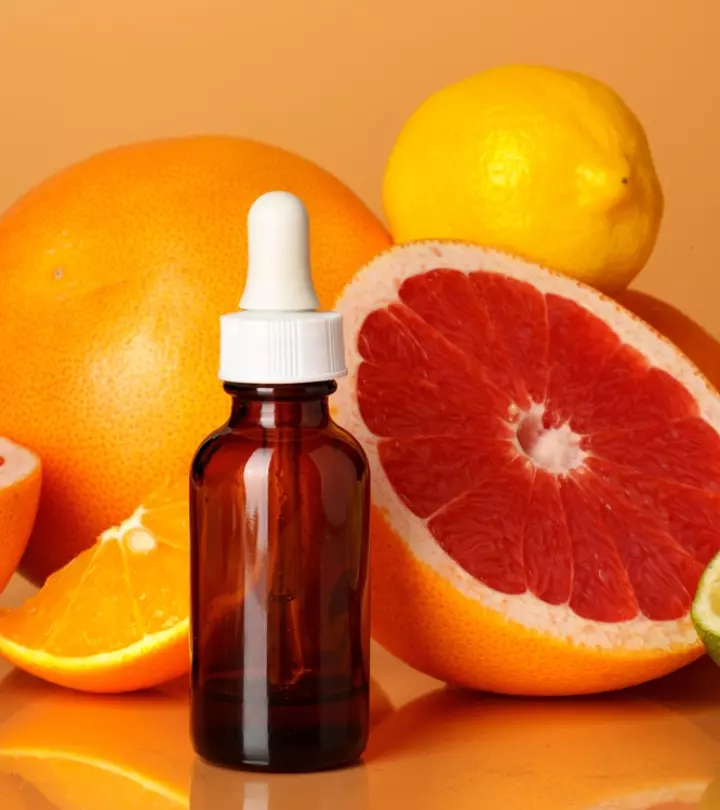
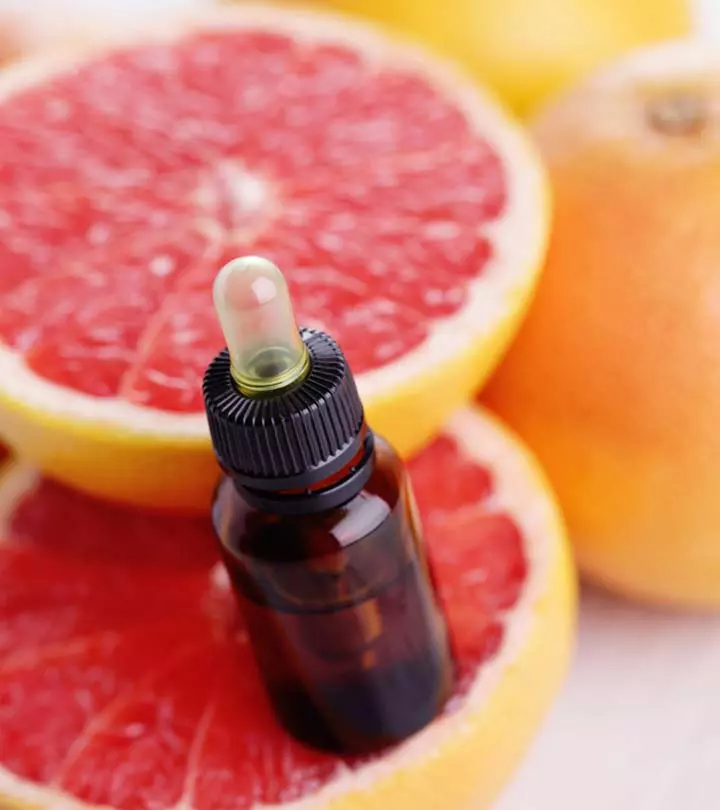

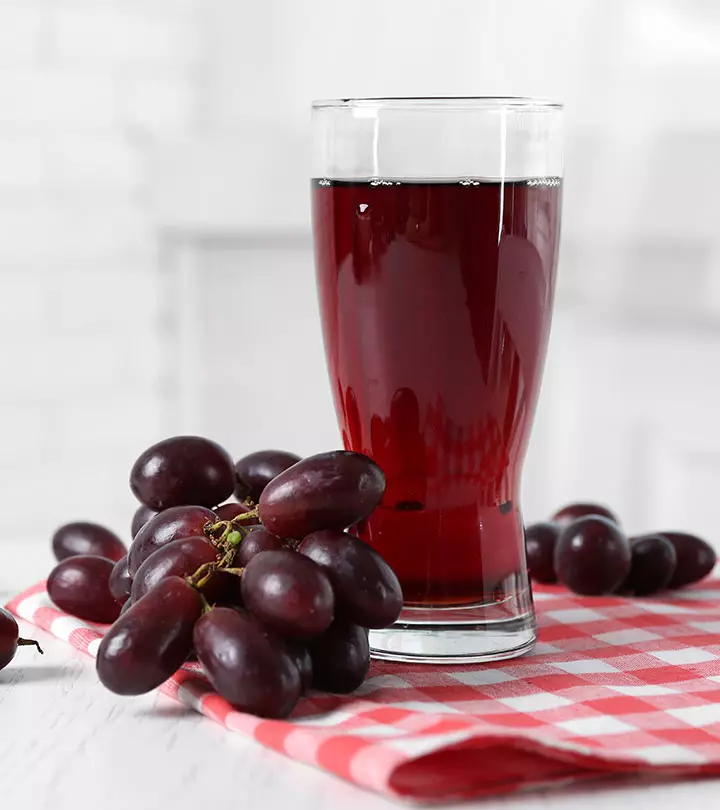
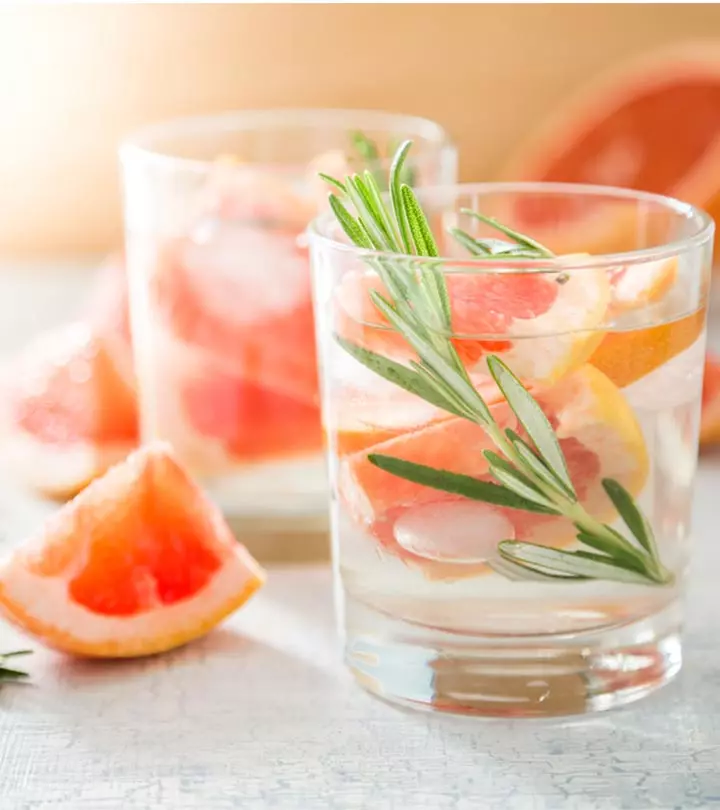

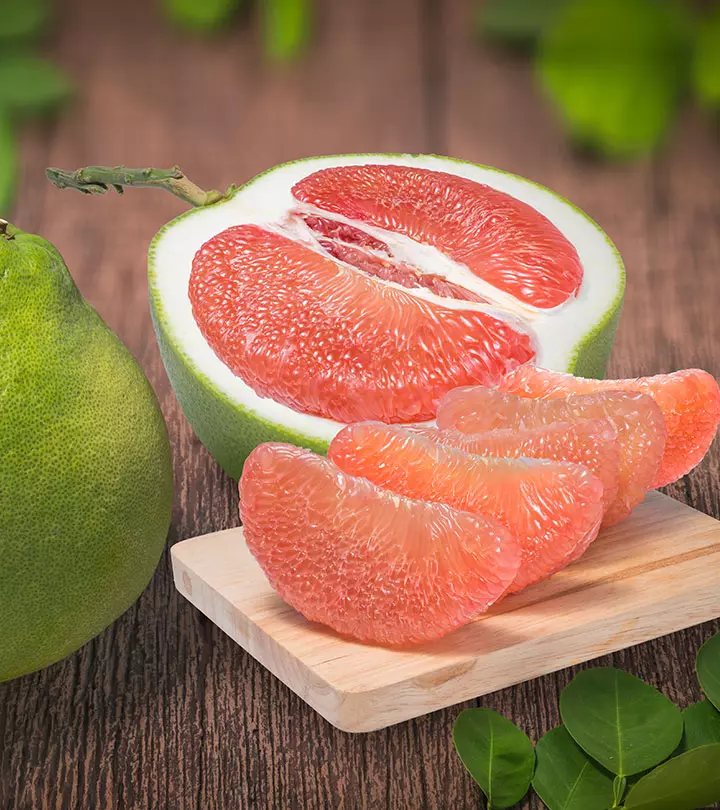


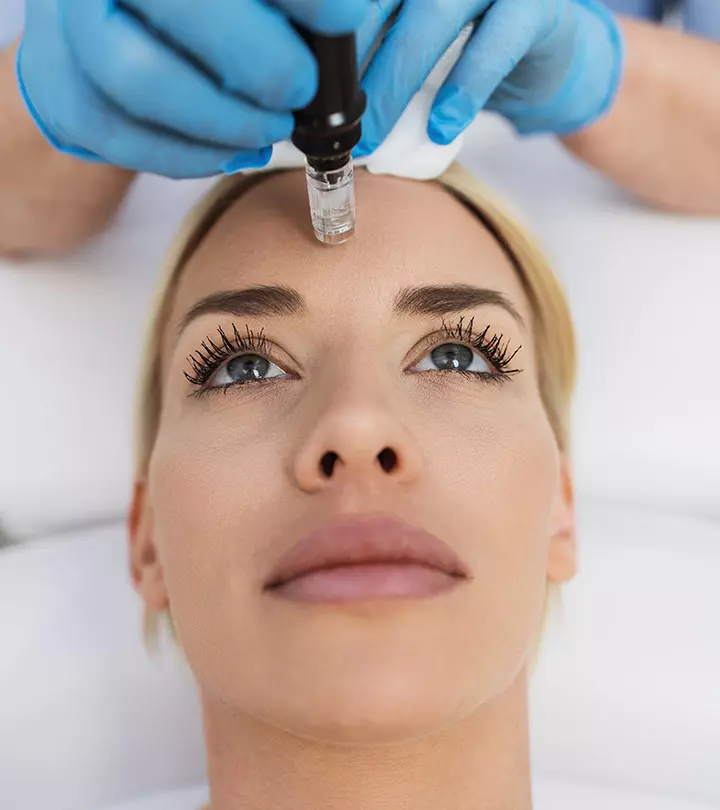


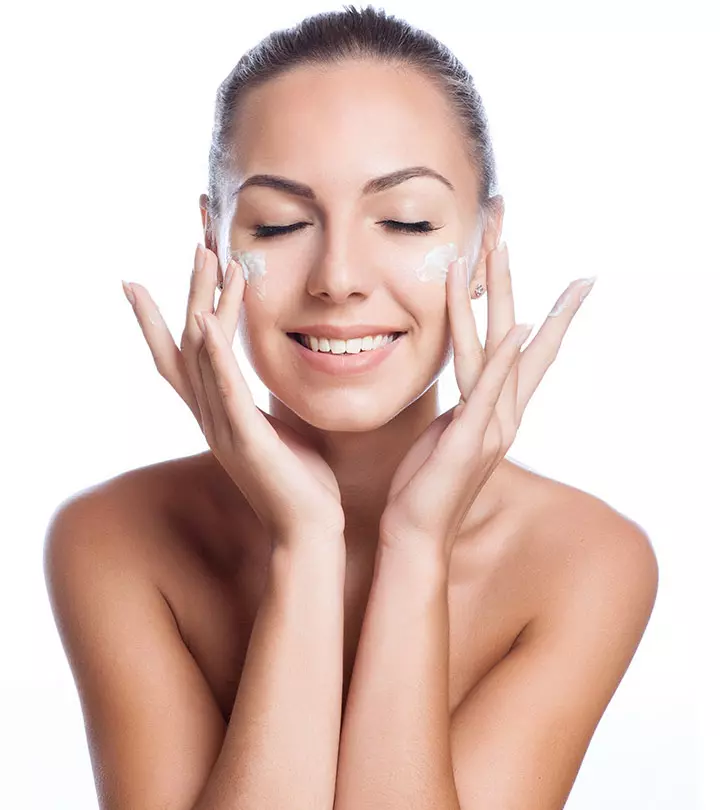






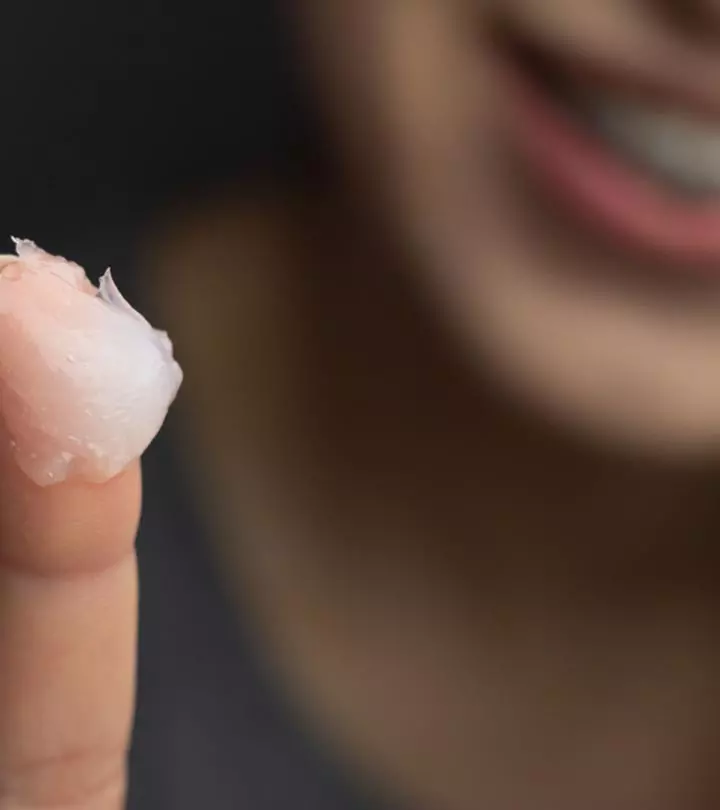
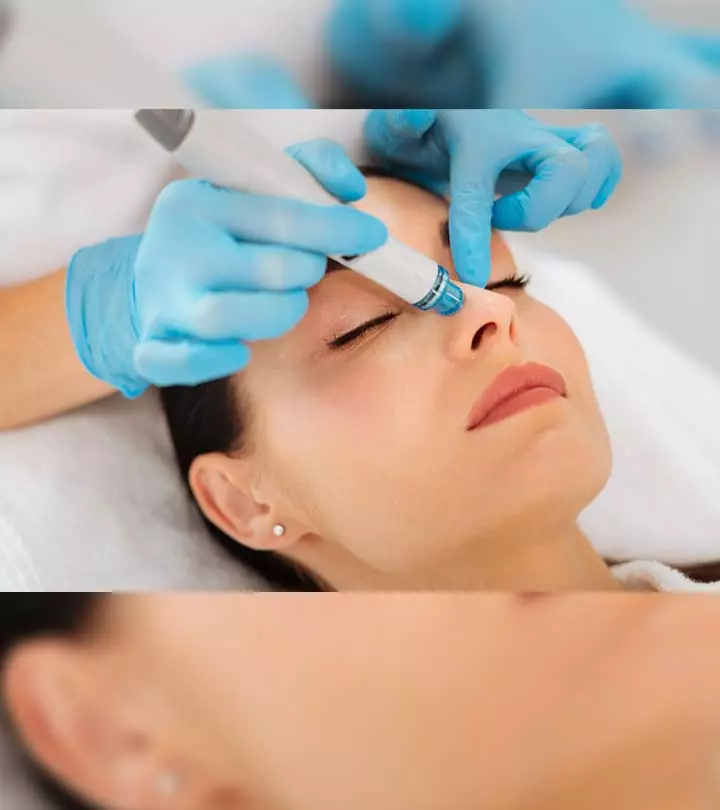
Community Experiences
Join the conversation and become a part of our empowering community! Share your stories, experiences, and insights to connect with other beauty, lifestyle, and health enthusiasts.